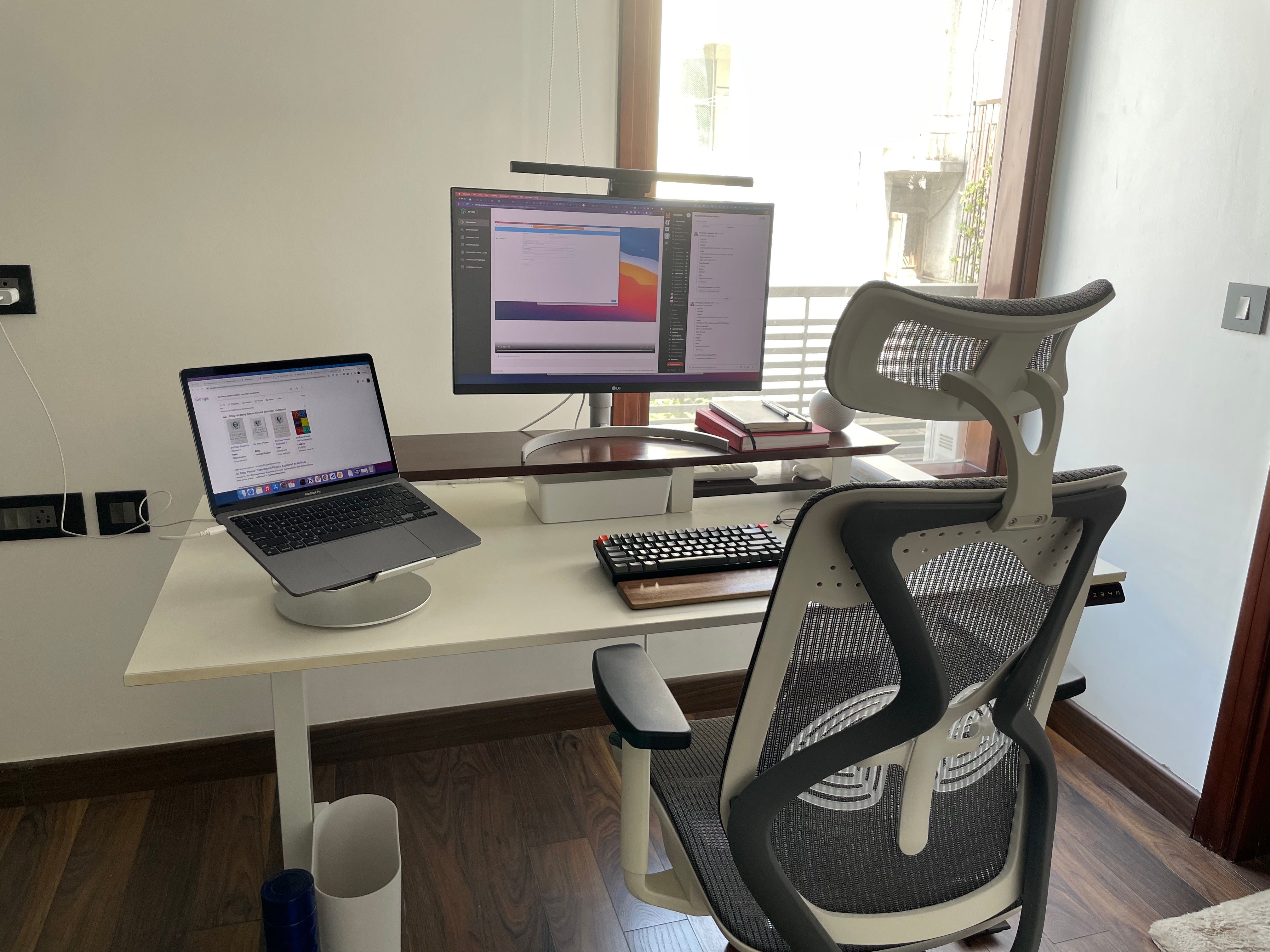Console
Interview with
Mayank Bhola
VP, Engineering, LambdaTest
A cross browser testing tool.



What is LambdaTest? Why did you build it?
LambdaTest is a test execution platform. There are lots of different mechanisms for cross browser testing, but what was missing was a developer convenience layer. Developers need a holistic platform that can help them discover and fix bugs, highlighting not just which tests pass but which ones fail and why.
We built LambdaTest because we found many of the existing options were slow, limited in features and were missing crucial integrations. Everyone has their own approach to issue management, reporting, and development. If your tooling does not allow integration into what you already use, it causes problems.
In developing a cross browser testing platform, we saw that it's not just important that you provide a platform, it's very important that you keep up the pace with the latest technology trends. For example, Selenium 4 is coming and developers are always trying new tools - it’s important for us to keep abreast of all these changes and be at the bleeding edge. Web development moves very fast.
Another example is keeping up with releases. As well as all the current versions, we provide beta analysis for releases of Google Chrome, Firefox, and other browsers, and we also provide nightly builds for macOS’ new Monterey Beta. Our customers are able to test their applications way before these OS’ actually land with users.
We deal with managing those systems, even when they might be quite unstable. We do a lot of engineering and we add a lot of mechanisms so that you get the best performance possible. Even if the browser is crashing, we should be able to respond immediately, and resume your session so that you as a user do not have to worry about these all platform level inconsistencies.
Today, LambdaTest provides a cross-browser testing platform, but this is not the end goal. We want to be the AWS for testing. We want to provide all the tooling and execution environments required to do any kind of testing.
What does a “day-in-the-life” look like?
A lot of my time is spent unblocking our teams. I help a lot with customer-facing groups where we're seeing very unique cases for our customers.
As a platform we support all the different testing frameworks. There are times that we see a new framework that is not playing well according to the Selenium WebDriver protocol, which we use behind the scenes, and so we have to make changes in order to accommodate it. I help coordinate this.
Otherwise, I spend time thinking strategically about what we need to launch in the next 6 to 12 months, and making sure that the next technology products that arrive have a testing platform ready by the time they're getting mature.
What does the team look like?
I have multiple leads that are working with me directly, and we have a pod structure for teams where each pod is empowered to ship code to production independently. These pods include back-end developers, front-end developers, DevOps, infrastructure, product managers, and the QA teams. All of these are autonomous so that they can move with great velocity without impacting each other’s work. I stay in touch with the leads so that they move without creating any resistance.
How do you structure systems to help with this?
We have evolved our approach through several iterations to allow our teams to work as we’ve scaled. Several years ago we used a Gitflow methodology but are now using the GitLab flow based around branches.
Every developer has their own developer console in the cloud which runs a complete copy of LambdaTest, including anonymized production data (sanitized of customer information). They all have access to all the services connected to LambdaTest at their own disposal. This ensures development can happen in a self-contained environment without any dependencies on any other team members. Testing and development can happen in parallel, and DevOps can also test the underlying infrastructure without impacting anybody else.
To achieve this we have written custom scripts using Terraform and Kubernetes, combined with an internally developed Golang agent. All the platforms we support, such as the different browsers, are deployed as single binaries, which makes them easy to distribute.
In production, we deploy to AWS but also have our own data center setup for running some of the more custom test environments and devices within VMs. Everything is configured using service management tooling built around Consul and Vault.
What is the LambdaTest tech stack?
We write our services in Golang, which are deployed as services over Kubernetes where possible. Unfortunately, the Windows and macOS support on Kubernetes is limited, but we use it for our microservices and in the cloud.
On the front-end, we use React based frameworks but we are slowly making a transition to TypeScript. We have a couple of services that are also written in NodeJS because we find it a friendly way to route connections between different services.
What is the most interesting challenge been building LambdaTest?
The sheer scale of making all the diverse testing frameworks work with our platform. New testing frameworks get built all the time so we have to keep track of them. If they're not following the Selenium spec, we have to write a wrapper for them. Ultimately, our end-users should not be impacted. That has been the most difficult challenge, breadth-wise.
Depth-wise, we have to adapt operating systems that are often designed for single-users so that they can work in test scenarios.
For example, if you want to run multiple Safari instances with different proxies, it is not possible out of the box - proxy settings are defined globally. We have had to write custom implementations that interact with the OS at a networking API level to allow this functionality. This is a challenge by itself, but then Apple likes to update its platform with undocumented internal changes that we need to work around!
How do you see your relationship with the open-source Selenium project?
I'm proud to say that we are Selenium level (top tier) sponsors of Selenium because we wholeheartedly support their dream of empowering testers with robust test tooling. We are striving to contribute to projects that connect with Selenium or WebDriver directly as well because it is important for us that the whole ecosystem grows along with the Selenium project as well. We make sure that we are up to date with all the documentation and that we also provide technical expertise and thought leadership to such projects.
How did you first get into software development?
I was really fascinated by sci-fi movies. I would look at the hackers typing something on the green screen and that inspired me. I got into development via the web starting in the UI and then slowly moving to the back-end and the architecture. I pursued computer science as my bachelor’s and from there, things started looking good! I began working at Zomato and moved up the ladder from there. I always loved to write code from scratch.
I like experimenting with other languages. While we were choosing Go, we also looked at Rust. There was a huge discussion going on in the community, but we found that Go was a much more mature language. We are going to stick with Go for the long term because we invested a lot into it. The learning curve with Rust is quite challenging.
What's the most interesting tech you're playing around with at the moment?
We are huge fans of HashiCorp’s tooling and use Vault and Consul heavily. We use a lot of Kubernetes, specifically in Golang, and have written our own boilerplate framework. We also make use of open source frameworks like Cobra, go-kit, gin etc
Describe your computer hardware setup

Right now, I'm using an M1 MacBook Pro with a 27 inch 4K LG display. I use a Keychron mechanical keyboard and I have an Apple trackpad.
I just switched to Apple HomePod Minis for a stereo pair, that was quite a learning experience for me. Although I had some warnings from friends, I was able to figure out that they work really well if you have a good router - the latency isn’t a problem then because they do not use Bluetooth, they actually use wifi for Airplay. Good wifi is the source of low latency!
Describe your computer software setup
OS: macOS.
Browser: Chrome.
Email: Gmail.
Chat: Slack.
IDE: VS Code.
Source control: Git.
Describe your desk setup
I use a standing desk controlled by a mobile app. It gives me a signal if I’ve been sitting for too long.
When coding
Daytime or nighttime? Daytime.
Tea or coffee? Tea.
Silence or music? Music.
What non-tech activities do you like to do?
I enjoy reading nonfiction, cooking Italian food and driving to discover places nearby.
Find out more
LambdaTest is a cross browser testing tool. It was featured as an "Interesting Tool" in the Console newsletter on 14 Oct 2021. This interview was conducted on 12 Oct 2021.
Subscribe to the weekly Console newsletter
An email digest of the best tools and beta releases for developers. Every Thursday. See the latest email